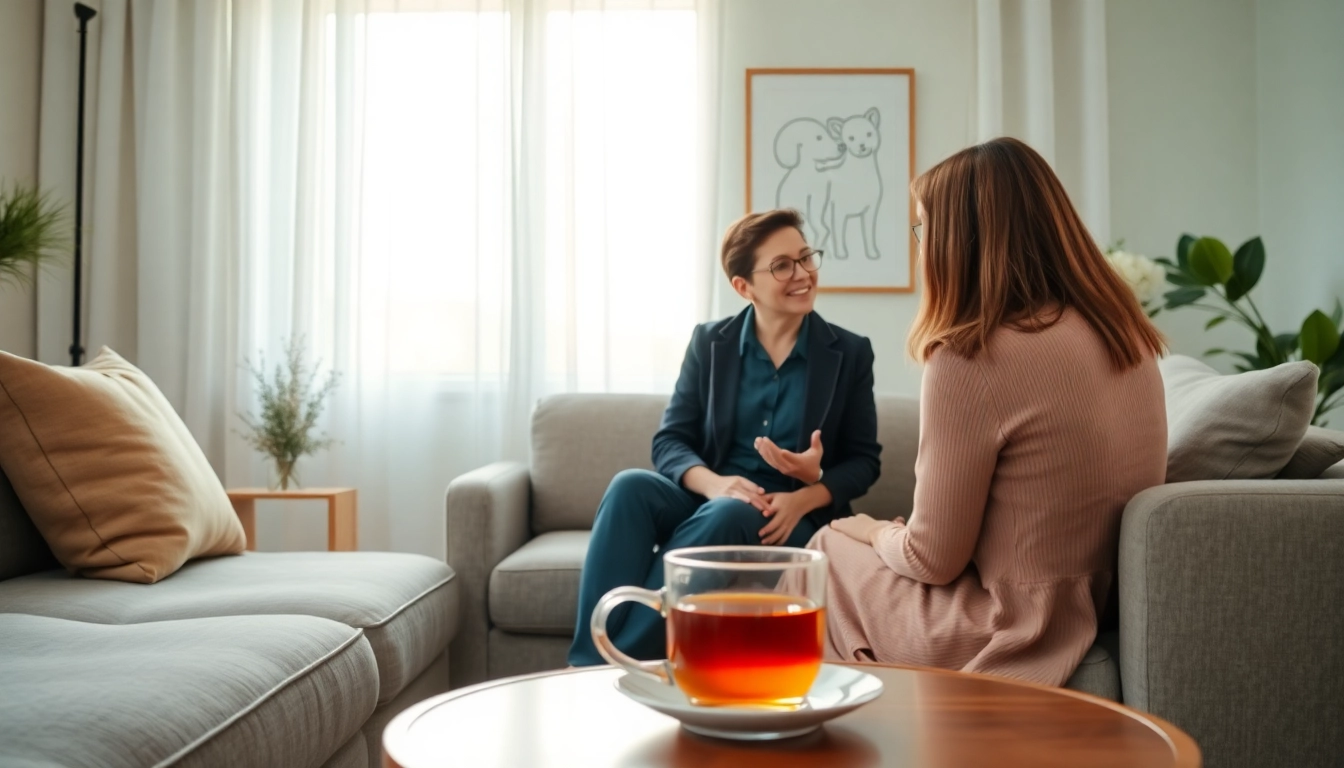Introduction to Attachment Theory and Its Importance
Attachment theory, first developed by John Bowlby and later expanded by others such as Mary Ainsworth, provides a vital framework for understanding the complexities of human relationships. Central to this theory is the idea that the emotional bonds we form with primary caregivers during our early years shape our interactions in adulthood. This has profound implications for personal relationships, mental health, and emotional regulation. Seeking the help of an attachment theory specialist can significantly benefit those looking to understand and improve their emotional connections.
What is Attachment Theory?
Attachment theory posits that the bonds formed in early childhood influence an individual’s relational patterns throughout life. There are four primary attachment styles identified within this framework: secure, anxious, avoidant, and disorganized. These styles reflect the manner in which individuals relate to others, revealing how they cope with intimacy, conflict, and vulnerability.
The Impact of Attachment Styles on Relationships
Each attachment style plays a crucial role in shaping one’s relationships. For instance, individuals with a secure attachment style often enjoy healthy relationships marked by trust and emotional availability. Conversely, those with anxious or avoidant styles may struggle with intimacy, vulnerability, or communication. Understanding these styles is essential for personal development and can guide individuals in their quest for fulfilling relationships.
Why You Might Seek an Attachment Theory Specialist
Many people turn to an attachment theory specialist for help in addressing recurrent relationship issues, emotional distress, or personal challenges related to attachment. Whether one struggles with forming emotional connections, feels overwhelmed by intimacy, or faces anxiety related to relationships, specialists can provide tailored approaches to facilitate healing and growth.
What an Attachment Theory Specialist Does
An attachment theory specialist is trained to recognize and address the emotional patterns and behaviors that stem from attachment styles. Their work encompasses various therapeutic techniques aimed at helping individuals understand their attachment backgrounds, transform their relational patterns, and foster healthier connections with others.
Key Responsibilities of a Specialist
Attachment theory specialists carry several responsibilities, including:
- Conducting assessments to identify attachment styles and their impact on the individual’s life and relationships.
- Providing therapy that addresses the emotional and psychological needs related to attachment issues.
- Fostering a safe space for clients to explore their feelings and relationships in-depth.
- Teaching coping strategies to deal with relationship anxiety, conflict, and emotional regulation.
Types of Therapy Techniques Utilized
Specialists employ a variety of therapeutic techniques, including but not limited to:
- Emotionally Focused Therapy (EFT): Designed to strengthen emotional bonds between partners.
- Attachment-Based Therapy: Focuses on reworking negative patterns and fostering secure attachments.
- Cognitive Behavioral Therapy (CBT): Helps reframe negative thoughts and behaviors that arise from attachment issues.
How Specialists Support Various Relationship Dynamics
Attachment theory specialists cater to individuals, couples, and families, addressing diverse relational dynamics. They provide insightful methods for resolving conflicts, improving communication, and building trust. This support can be pivotal for couples struggling with intimacy or families dealing with attachment disruptions.
Identifying Your Needs: When to Consult an Attachment Theory Specialist
Recognizing the right time to consult an attachment theory specialist can be crucial for personal growth. Understanding your needs ensures a more productive therapeutic process.
Signs You May Benefit from Professional Help
There are various indicators suggesting the need to see a specialist:
- Recurring issues in romantic relationships, such as sudden breakups or frequent arguments.
- Difficulty forming close relationships or feeling disconnected from others.
- Struggles with anxiety or fear of abandonment.
Common Issues Addressed by Specialists
Attachment theory specialists address a multitude of issues, such as:
- Insecurity in relationships, often manifesting as jealousy or possessiveness.
- Patterns of avoidance, leading to emotional detachment and isolation.
- Coping mechanisms for managing attachment-related anxiety.
Questions to Ask When Seeking a Specialist
When looking for an attachment theory specialist, consider asking the following questions:
- What is your approach to attachment theory in therapy?
- How do you assess attachment styles, and how does that influence your therapy?
- What can I expect from our sessions, and how will you measure progress?
Finding the Right Attachment Theory Specialist
Finding an appropriate specialist involves research and reflection. The right fit can significantly enhance the effectiveness of therapy.
Researching Credentials and Experience
When searching for a specialist, it’s important to consider their credentials, experience, and training in attachment theory. Look for therapists with advanced degrees in psychology or social work, and certifications related to attachment-based modalities.
Understanding Different Therapeutic Approaches
Different specialists may employ various therapeutic approaches. Familiarize yourself with techniques such as EFT, Narrative Therapy, and Psychodynamic Therapy. Understanding their differences can help you select a therapist whose approach resonates with your needs.
Evaluating Compatibility and Communication Styles
Therapeutic success often hinges on the rapport between the therapist and the client. It is essential to evaluate if a specialist’s communication style aligns with your preferences. An initial consultation can provide insights into their approach and help establish comfort.
Measuring Progress with Your Attachment Theory Specialist
Therapy is a journey that requires regular assessment of progress and expectations. Measuring growth can enhance the effectiveness of your sessions.
Setting Goals and Expectations
At the outset, collaborating with your specialist to establish specific goals is crucial. These goals can range from improving communication patterns to building self-esteem and secure attachments. Setting realistic expectations will guide the therapeutic process.
Recognizing Growth in Therapy
Growth in therapy can manifest in many forms. It may include improved relationship satisfaction, heightened emotional awareness, and better coping strategies during conflicts. Regular self-reflection on these changes is vital for recognizing personal evolution.
Long-Term Benefits of Attachment-Based Therapy
Engaging with an attachment theory specialist can yield long-term benefits, enabling individuals to foster healthier relationships, develop emotional resilience, and achieve a deeper understanding of themselves and their attachment patterns. These benefits often ripple outwards, positively affecting family dynamics, friendships, and even professional relationships.















Leave a Reply